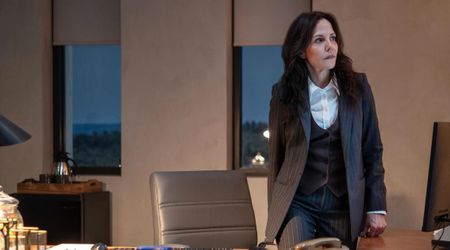'Fauda' Season 3: Show's key strength is how it blends on-field action with domestic scenes of main characters

While 'Fauda' Season 3 is packed with enough tense and action-filled moments to satisfy any adrenaline junkie, it is the quieter moments of domesticity that make it a stand-out show.
From the very beginning, the show dives into the personal lives and loves of the central characters that make the stakes real and the overall narrative an emotionally nuanced one.
We get to see Doron's relationship with his estranged son which makes him invest his love in Bashar instead. We also get an insight into Bashar's psychology as he turns to Doron in the absence of his father.
We also deep dive into the home lives and personal issues of the men and women serving with Doron in the IDF unit under Eli, their leader.
Eli is shown to be psychologically scarred from his last incursion into Gaza and this shows when he leads his team (which also functions as a family unit of sorts) into Gaza.
He loses his cool when Hila (Head of Gaza Desk), with Doron's urging, plans the mission into Gaza. Hila hides Doron's involvement as her lover and co-conspirator in hatching the plan to rescue Yaara and Elaad.
We also get to know the members of the unit intimately, like the violence-prone Sagi who is in a secret relationship with Nurit, his soon-to-be-married team member.
His frustration with his complicated love life spills into the job when he roughs up Nasser's wife while trying to provide Doron a cover story about why he disappeared from Jihad's welcome party after Ziad was killed — a death Doron is responsible for.
Then there is Avihai, the sharpshooter, who has made one mistake too many, engaging in "friendly fire" while making tense, split-second decisions between who is an ally and who is hostile.
The blood of his comrade on his hands is too much and he speaks his heart out during the inquiry about his on-field actions that end with him being scheduled for a military trial.
But the hostage rescue mission gives Captain Gabi the chance to get his name cleared so that he can be part of the team. Unfortunately, it is also his last mission and his wife cries when she hears the news, wondering why she didn't stop him with her "sad face".
It is also important to note that Avihai's hesitation to shoot a silhouette that looks like Doron results in him being wounded badly by Bashar who comes up from behind the opaque partition. That gunshot wound eventually kills him before he can get out of Gaza when he loses too much blood.
Doron also openly disobeys Eli's orders not to pursue Bashar because he feels guilty about what he has done to Bashar. He still thinks, at that point, that if he can just talk to Bashar, he can make things all right.
Avihai's death is therefore on Doron because Avihai follows in the direction he ran off in, to give him cover after the communication systems fail.
Steve, on the other hand, drops out of the Gaza mission because his wife Anat is losing it. She finds being a new mother with a constantly crying child overwhelming, especially since Steve is never around.
As she berates herself for being a bad mother and not knowing "how to do this", Steve realizes she and the baby are more important than any mission can ever be, even if it is to save hostages — always a touchy issue in Israel.
Lastly, we have Doron himself, so good at ingratiating himself and becoming a part of a target's family but unable to connect with his own son and always fighting with his ex-wife. He actually brings these emotions into his cover because "Abu Fadi", his cover is also angry that his ex-wife has taken his children away from him.
By juxtaposing the emotional lives of the protagonists with what they do on the field, 'Fauda' gives us a glimpse of how personal dramas and relationships affect matters of national security and decisions made on the field.
'Fauda' Season 3 is available to stream on Netflix from April 16 onwards.










